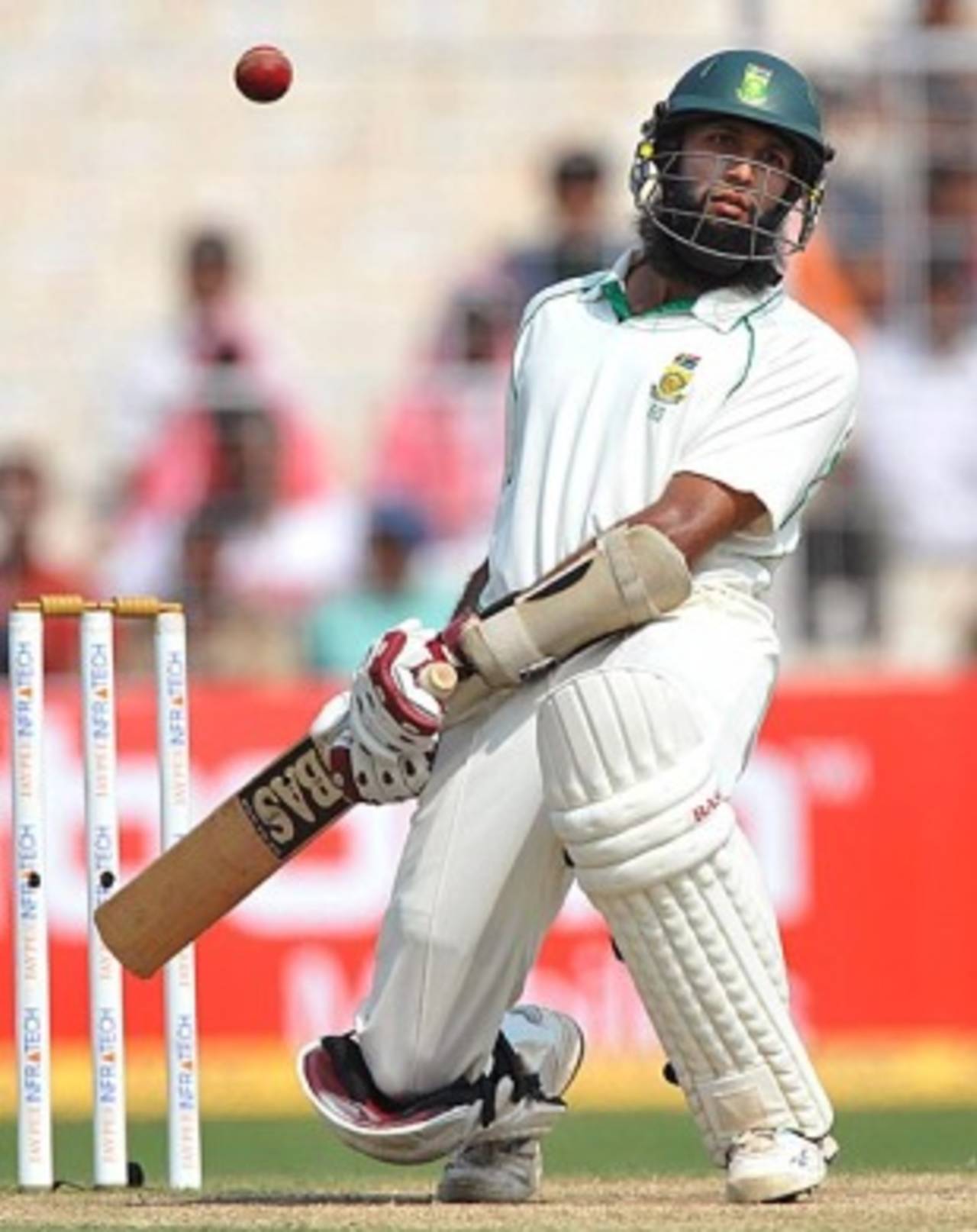After 1402 minutes and faced 1032 deliveries,
Hashim Amla finished with 490 runs in the series - the
second-best ever in a two-match series.
In Nagpur his253, compiled over 675 minutes, set up the match for South Africa and in Kolkata he refused to be intimidated by either the imposing Eden Gardens or the match situation. He remained the last South African standing after a vigil that spanned one minute short of 500; it's the sort of timespan that causes dehydration, cramps, fatigue and spasms in other batsmen but Amla complained of nothing, maintaining his focus and his beatific smile throughout.
"I have learnt, after passing that stage of thirst and mental fatigue, that the limits we put on the body and mind can, and at times must, be challenged," Amla had once said while talking on the gains he derives from fasting in the Muslim holy month of Ramadan. It is an interesting statement that provides an insight to this most intriguing batsman.
It proves, and the evidence was there during his three centuries in the last two weeks, that Amla is not going to stop at anything - and will not be stopped by much either. He was more sure and secure about himself and his gameplans. Also, taking responsibility has never been an issue, considering he has been the captain at the school (Durban Boys Highs School), Under-19 (2002 World Cup) and the franchise (Dolphins) levels.
He entered the Nagpur Test as the top-scorer in the two-day
warm-up match against the Indian Board President's XI, where he had scored a fluent 72. A few days later he walked into the first Test at 5 for 1 and returned only when South Africa declared at 558 for 6, the highlight of which was his 340-run partnership with Jacques Kallis.
In Kolkata last Sunday, when Graeme Smith departed even before South Africa's score could reach double digits (9 for 1) Amla settled easily into the groove and came up with an assured 209-run partnership. He returned to the crease three days later and remained till Harbhajan Singh broke the stubborn resistance of Morne Morkel.
All this is not to say Amla was playing for time and grinding it out. Instead, his bloody-mindedness, an antithesis to the fast-paced approach of the Twenty20 age, harked back to a time before Australia made aggressive batting a prerequisite of Test cricket. Though that change has led to an increase in results in Test cricket, the flipside is that batsmen have not shown the grit to hand in there when the situation demands.
When they do occur, such situations stand out, as does Gautam Gambhir's 11-hour knock that allowed India to draw the
Napier Test after being asked to follow on by New Zealand. Just like Gambhir played the ball with an open face of the bat, Amla too, came out confident and never refused to take advantage of the loose deliveries.
Importantly, he planned his approach according to the situation and the batsman at the other end. Today, he was left to marshall the tail for the final two sessions but the expression and body language remained unchanged. He broke the sessions into hours, hours into minutes, overs into balls, making the opposition change their plans along the way.
Surprisingly, MS Dhoni never set attacking fields to Amla in the first session today, especially when Harbhajan Singh was on. Even against Amit Mishra the patrolling was not suffocating and Amla enjoyed his freedom.
"When you know at the back of your mind that you have to bat the whole the day but to break it down is the key," Amla said in the post-match media conference. "In the change room we always talk about breaking it down hour by hour, over by over, ball by ball and there are no overs left in the day."
His confidence rubbed off on even inexperienced partners like Wayne Parnell and Mornel Morkel, as they gave him able support and reinvigorated South African hopes which seemed virtually over an hour after lunch.
"Our emotions when myself and Morne were out there were enjoying it more than anything," Amla said. "I took a lot of confidence from Morne and Parnell who told (me) they were more comfortable at certain ends so that made my job easier to farm the strike. It just was a lovely experience."
